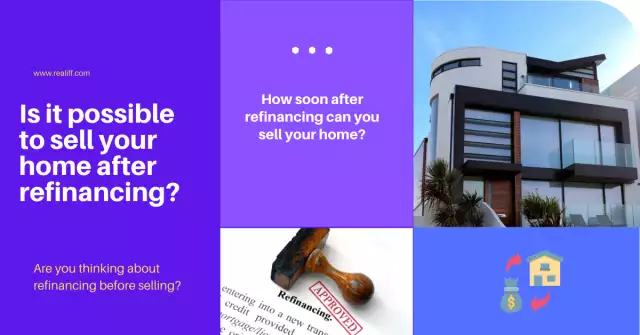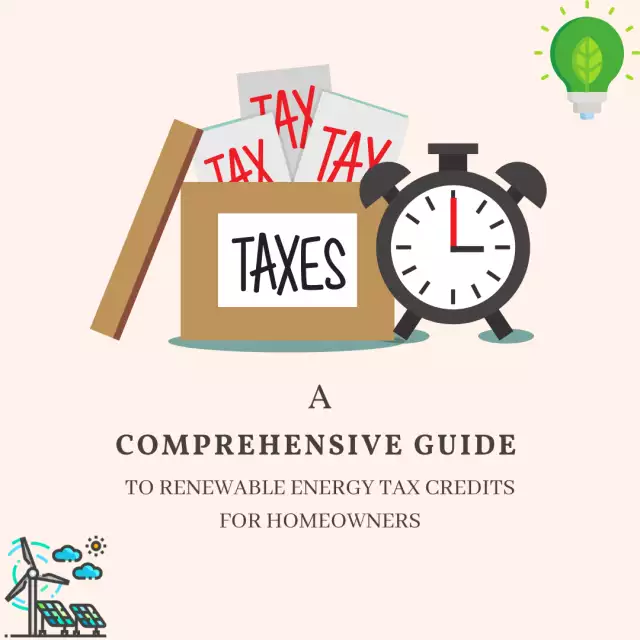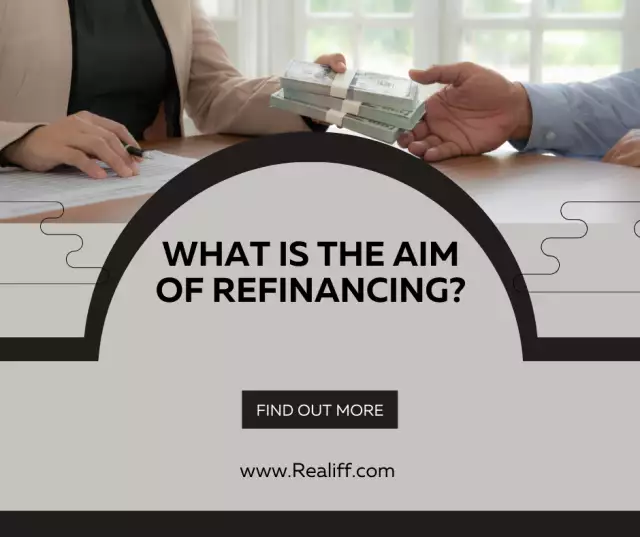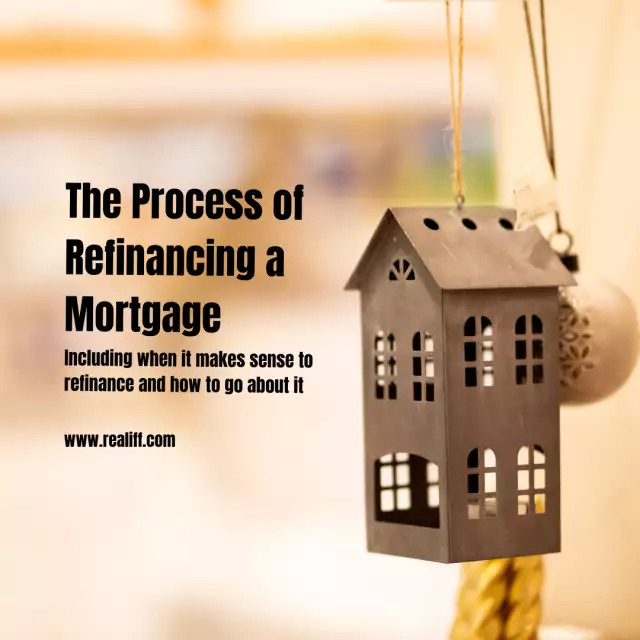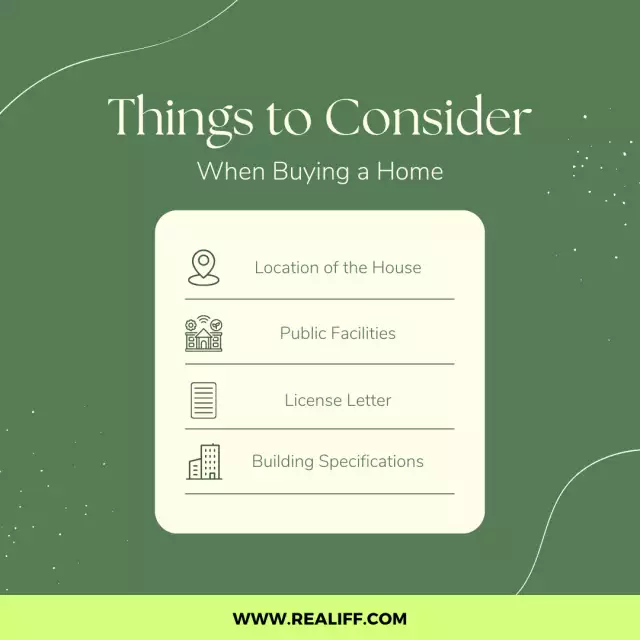Refinancing Before Selling: A Strategic Guide for Homeowners
Refinancing Before Selling: A Strategic Guide for Homeowners
In the ever-evolving real estate market, homeowners are often confronted with complex financial decisions that require careful consideration. One such decision is whether to refinance their property before putting it up for sale. This decision can potentially offer significant financial benefits, but it also involves navigating through a maze of factors that could impact the outcome. This comprehensive guide aims to delve into the advantages of refinancing before selling, what considerations to keep in mind, and how this decision can shape your financial landscape.
The Strategic Advantages of Refinancing Before Selling
Refinancing, which involves modifying the terms, interest rate, or total amount of an existing mortgage, can be a powerful tool for homeowners planning to sell. By adjusting your mortgage, you may be able to lower your monthly payments, access equity for home improvements, or secure a better interest rate. These changes can make your property more attractive to buyers and potentially lead to a quicker sale at a higher price.
For instance, if you refinance to obtain a lower interest rate, your monthly mortgage payments decrease. This can improve your cash flow, making it easier to afford the upfront costs associated with selling a home, such as repairs or staging. Additionally, if you pull equity from your home through a cash-out refinance, you can use these funds to make essential upgrades or renovations that boost the property’s market value. This can be particularly advantageous in a competitive market where buyers are looking for move-in-ready homes.
Key Considerations Before Refinancing Your Home
Before deciding to refinance your property, it’s crucial to conduct a thorough evaluation of your financial situation and the current market conditions. Here are some essential factors to consider:
Evaluating Financial Health
Your financial health is a critical factor in the refinancing decision. Begin by assessing your credit score, as it plays a significant role in determining the interest rate and terms you qualify for. A higher credit score can translate into lower interest rates, making refinancing more cost-effective. Additionally, review your overall financial situation, including your debt-to-income ratio and savings. Ensure that you have a clear understanding of your financial goals and how refinancing aligns with them.

Assessing the Costs of Refinancing
Refinancing is not without its costs. Common expenses include closing costs, appraisal fees, and potentially prepayment penalties. These costs typically range from 2% to 5% of the loan's principal amount. It’s crucial to analyze these expenses carefully to ensure that they do not outweigh the benefits of refinancing, especially if you plan to sell the home shortly after. A detailed cost-benefit analysis will help you determine if refinancing is a financially sound decision.
Understanding Market Conditions
The state of the real estate market can significantly influence the benefits of refinancing. In a rising market, pulling equity from your home for improvements can enhance your property’s value, making it more appealing to buyers. Conversely, in a stagnant or declining market, the costs of refinancing might not be justified by the potential increase in property value. Keep a close eye on local market trends and economic indicators to gauge the best timing for refinancing and selling.

Navigating Potential Restrictions and Penalties
Refinancing often comes with certain conditions and restrictions that homeowners must be aware of. Two common issues are owner-occupancy clauses and prepayment penalties:
Dealing with Owner-Occupancy Clauses
Many refinancing agreements include owner-occupancy clauses, which require the homeowner to live in the property for a specified period after refinancing—typically between 6 to 12 months. Selling the home before this period ends can lead to penalties or other complications. It’s essential to understand these clauses and how they might impact your plans to sell.
Understanding Prepayment Penalties
Prepayment penalties are fees charged by lenders if you pay off your loan earlier than expected. These penalties are designed to compensate lenders for the lost interest income. Before refinancing, carefully review your loan agreement to identify any prepayment penalties and consider how they could affect your financial strategy. If you plan to sell soon after refinancing, these penalties could significantly impact your overall financial outcome.
Strategic Alternatives and Financial Planning
While refinancing can offer numerous benefits, it’s not always the best option for every homeowner. Exploring alternative strategies and refining your financial goals are crucial steps in making an informed decision.
Refining Financial Goals through Refinancing
If your primary goal is to reduce your monthly payments or switch from an adjustable-rate mortgage to a fixed-rate mortgage, refinancing could be a favorable option. Lower monthly payments can improve your cash flow and make it easier to manage your finances leading up to the sale. Switching to a fixed-rate mortgage can provide stability in your payments, which is particularly valuable in a fluctuating interest rate environment. However, it’s important to ensure that the financial gains from these changes justify the costs of refinancing.
Exploring Alternatives to Refinancing
If the costs of refinancing are too high or the conditions are not favorable, consider alternative options. A home equity line of credit (HELOC) or a second mortgage can provide the necessary funds for home improvements without the need for a full refinance. These options might come with lower fees and fewer restrictions, making them more suitable for some homeowners. It’s worth exploring all available options and comparing their costs and benefits to find the best solution for your financial needs.
Expert Insights on Refinancing
Navigating the decision to refinance before selling requires a deep understanding of the financial landscape and market conditions. Barbara Corcoran, a well-known real estate expert, emphasizes the importance of careful analysis: "Refinancing before selling requires meticulous assessment of financial benefits against potential risks. Homeowners should thoroughly evaluate their financial health and the current market to make informed decisions."
Corcoran’s advice highlights the need for homeowners to approach refinancing with a strategic mindset, weighing the potential advantages against the associated costs and risks.
The Most Comprehensive Tips for All Aspects of Refinancing Before Selling
- Consult a Mortgage Advisor: An experienced advisor can provide valuable insights and help you determine the best loan options based on your financial situation.
- Improve Your Credit Score: Pay down debts, make payments on time, and correct any errors on your credit report to boost your credit score.
- Save for a Down Payment: Start saving early to meet the down payment requirement. Consider setting up a dedicated savings account for this purpose.
- Maintain Stable Employment: Ensure you have consistent work experience and stable income for at least two years before applying.
- Reduce Your Debt-to-Income Ratio: Pay off existing debts to lower your DTI ratio, making you a more attractive borrower.
- Gather Required Documents: Prepare necessary documents such as tax returns, pay stubs, bank statements, and identification ahead of time.
- Choose a Reputable Lender: Work with a lender experienced in loan repayment strategies to guide you through the process efficiently.
- Attend Financial Education Courses: These courses can provide valuable information and may be required by some lenders.
- Stay Informed About Financial Trends: Understand market conditions and trends to make informed decisions about your repayment strategy.
- Be Patient and Persistent: The loan repayment process can take time, so be prepared to follow up with your lender and provide any additional information they request.
Navigating Common Questions About Refinancing Before Selling
Q. Can refinancing help sell my home faster?
A. Yes, refinancing can help sell your home faster by allowing you to make necessary improvements that make your home more attractive to buyers.
Q. What are the main costs associated with refinancing?
A. Common costs include closing costs, appraisal fees, and potentially prepayment penalties, typically ranging from 2% to 5% of the loan's principal amount.
Q. How do market conditions affect refinancing benefits?
A. In a rising market, refinancing for improvements can increase your property's value. In a stagnant market, the benefits might not outweigh the costs.
Q. Are there alternatives to refinancing?
A. Yes, alternatives include a home equity line of credit (HELOC) or a second mortgage, which might come with lower fees and fewer restrictions.
Q. How do owner-occupancy clauses impact refinancing?
A. These clauses require you to live in the property for a specified period after refinancing, which can complicate plans to sell shortly after.
Q. What is the impact of prepayment penalties?
A. Prepayment penalties can reduce the financial benefits of refinancing if you plan to sell soon after refinancing.
Conclusion: Making the Right Move

Refinancing before selling your home can offer significant benefits, including improved cash flow, increased property value, and more attractive financing conditions for potential buyers. However, it’s a decision that requires careful consideration of various factors, including your financial health, the costs involved, market conditions, and potential restrictions.
To make an informed decision, homeowners should conduct a thorough analysis of their financial situation and the current market. Consulting with real estate professionals and financial advisors can also provide valuable insights and help you navigate the complexities of refinancing and selling.
For those looking to explore refinancing options and make well-informed decisions, Realiff.com provides a wealth of resources and advanced tools. As a leader in real estate technology and market insights, Realiff.com supports homeowners in aligning their decisions with current market trends and individual financial goals.
By leveraging strategic refinancing and considering these detailed insights, homeowners can enhance their financial outcomes and successfully navigate the real estate market. Whether you decide to refinance before selling or explore alternative options, the key is to approach the decision with a clear understanding of the potential benefits and risks.
